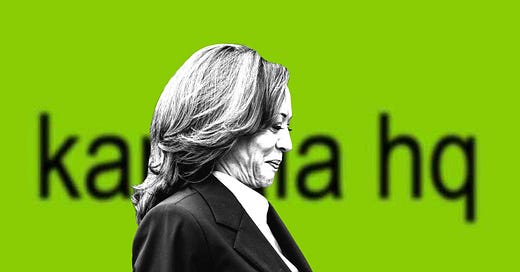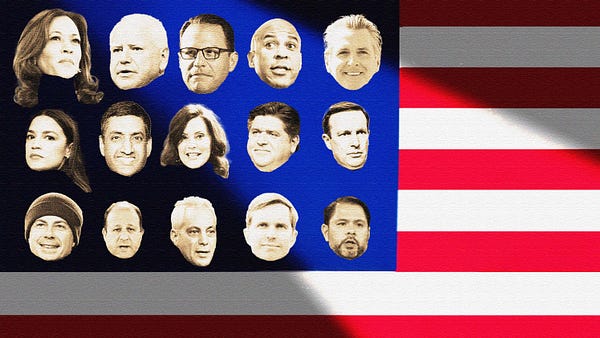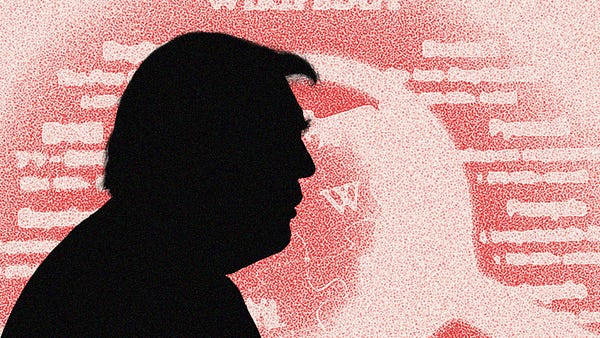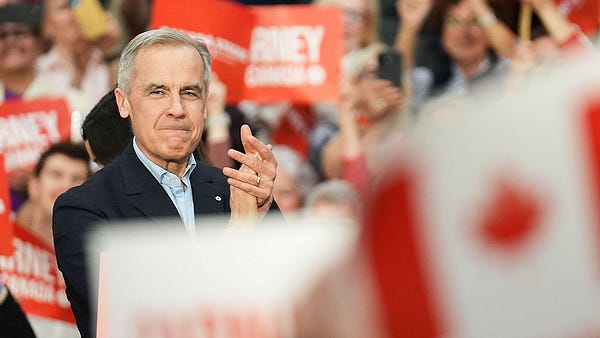
The Free Press

Kamala Harris is a brat—but you must understand, this is supposed to be a good thing. After the VP announced she’d be running for president, the singer Charli XCX tweeted: “Kamala Harris IS brat,” “brat” being both the title of the pop artist’s stratospherically popular new album and the summer’s biggest vibe, as decreed by Gen Z.
The internet went crazy. There were memes; there were t-shirts with Kamala’s name spelled out in the “brat font”; there was Kamala’s actual campaign, rebranding its actual page on X to look like the cover of Brat. As of this writing, the country has become so consumed by brat madness that everyone from random TikTokers to a literal senator are overlaying pictures and videos of Kamala with a brat-colored filter, an eye-searing shade of green described by its aficionados as “slime.”
In case you hadn’t heard, it’s Brat Girl Summer, as Gen Z returns once more to its annual tradition of spending the months between Memorial and Labor Day engaged in the self-conscious performance of some archetypal vibe. Perhaps you remember this trend from its previous hits, including Hot Girl Summer, Blob Girl Summer, or Feral Girl Summer—or one of various adjacent phenomena, such as Girl Dinner or Hot Girl Walks.
But what does it actually mean to be “brat”?
The best summary of bratdom might come from my Free Press colleague River Page, who quips, “Brat Girl Summer is just women acting like gay guys.” On TikTok, Charli XCX herself described the quintessential brat as “just that girl who is a little messy and maybe says dumb things sometimes, who feels herself but then also maybe has a breakdown but parties through it. It is honest, blunt, and a little bit volatile”—which maybe explains why she felt it appropriate to bestow the moniker on Kamala. But it’s harder to see the VP in Charli’s official song of the Brat Girl Summer, “365,” which describes a lifestyle defined by clubbing from dusk till dawn, decked out in slime-colored clothing and sustained by a steady diet of self-regard and cocaine.
If this sounds a lot like the ’80s to you, that’s not a coincidence. The Brat Girl shares both aesthetic DNA and a partial moniker with the original Brat Pack, the group of young actors once beloved by director John Hughes, who are currently the subject of a new documentary, Brats. The personal lives of the Brat Pack were plagued by the moneyed, druggie excesses of the era; several of them famously struggled with addiction, alcoholism, and various and sundry other scandals. But on-screen, these actors—who were mostly adults in their 20s—embodied the potent mix of teenage angst and apathy that defined Generation X, and it’s not hard to trace a line from this early version of extended adolescence to the contemporary brat. Indeed, this summer’s most famous brat girls are all very much adult women: Charli XCX is 31. She did a collaboration with Lorde, who is 27. She references Julia Fox, who’s 34.
At 59, Kamala would have been about the right age to be a member of the original Brat Pack, but hardly fits the party girl standard in her present form.
Granted, if Kamala wanted to position herself as a younger, hipper alternative to the decrepit outgoing POTUS, this is definitely one way to do it—at least as long as her otherwise cringeworthy how-do-you-do-fellow-kids posturing has the explicit blessing of the brat queen herself. But she should also beware: despite the youthful quest to redefine brathood as something aspirational—“putting yourself out there, being out, being about, being the center of attention,” per Julia Fox—the term can never be fully divorced from its original cultural context. As Kamala herself might say, it is not possible for brat to be unburdened by the brattiness that has been.
Indeed, the brat is a classic feminine archetype, right up there with the jezebel, the crone, the bimbo, the career girl. Brats are Cinderella’s stepsisters, lacking both social graces and appropriate gratitude for the privileges they enjoy. She’s Daniel Deronda’s Gwendolen Harleth, who fancies becoming an actress, and is shocked to learn that just being pretty isn’t enough to guarantee her success. She’s Veruca Salt, standing defiantly with her hands on her hips, shrieking the trademark catchphrase of her kind: “I want it NOW!”
In her ambition, the brat is clearly the heir to the throne left vacant by the girlboss, who was famously toppled in 2020 for being an avatar of problematic white feminism. But where the girlboss had to strive for her success, the brat simply expects it. The idea that she should have to earn the things she wants, rather than having them handed to her, is not just an affront; it is unfathomable. Don’t you understand? She wants it! She wants it now!
As such, the brat is a living embodiment of feminism as imagined by Gen Z, as infantilizing as it is superficial. She is the “if you can’t handle me at my worst, you don’t deserve me at my best” meme that used to circulate on Facebook in the early 2000s, except now she’s dancing on TikTok in a green vinyl miniskirt. Brats are selfish, self-involved, superficial, and careless with other people’s feelings—and convinced that in being like this, they are living their best lives. In her purest form, the brat marries the arrogance of a demanding toddler with the self-conscious slyness of an adult scam artist. She knows she’s behaving badly; she just thinks she should get away with it.
All of this makes it that much more remarkable that Kamala—who is already vulnerable to allegations that she’s a “DEI candidate” who doesn’t deserve her power and influence, and whose Republican opponent is possibly one of the brattiest men on the planet—would publicly align her campaign with an archetype defined by her sense of entitlement to things she has done nothing to merit.
And yet, here we are—with the Democratic Party apparatus seemingly not far behind. The most viral posts in support of the current VP are undeniably bratty, hyping Harris in terms familiar from the moment in 2020 when Joe Biden picked her as a running mate. Her record doesn’t matter; her rhetoric doesn’t matter; her dismal performance in the one and only genuine campaign race of her life—in which she never polled above 15 percent and couldn’t muster the backing even of voters in her own home state—doesn’t matter.
Nobody advocating for Harris has argued that she’s earned your vote—only that she should get it. Why? Because she wants it now, that’s why.
Kat Rosenfield is a columnist at The Free Press. Read her piece, “America Doesn’t Need Momala Harris,” and follow her on X @katrosenfield.
To support The Free Press, subscribe today:














What a fabulous last line: "Nobody advocating for Harris has argued that she’s earned your vote—only that she should get it. Why? Because she wants it now, that’s why."
I am afraid for my country. Weak disconnected leadership is an invitation for an attack by our enemies, and we do have many: Iran, Russia, China, Qatar (oops did I really say that? Must be Brat).